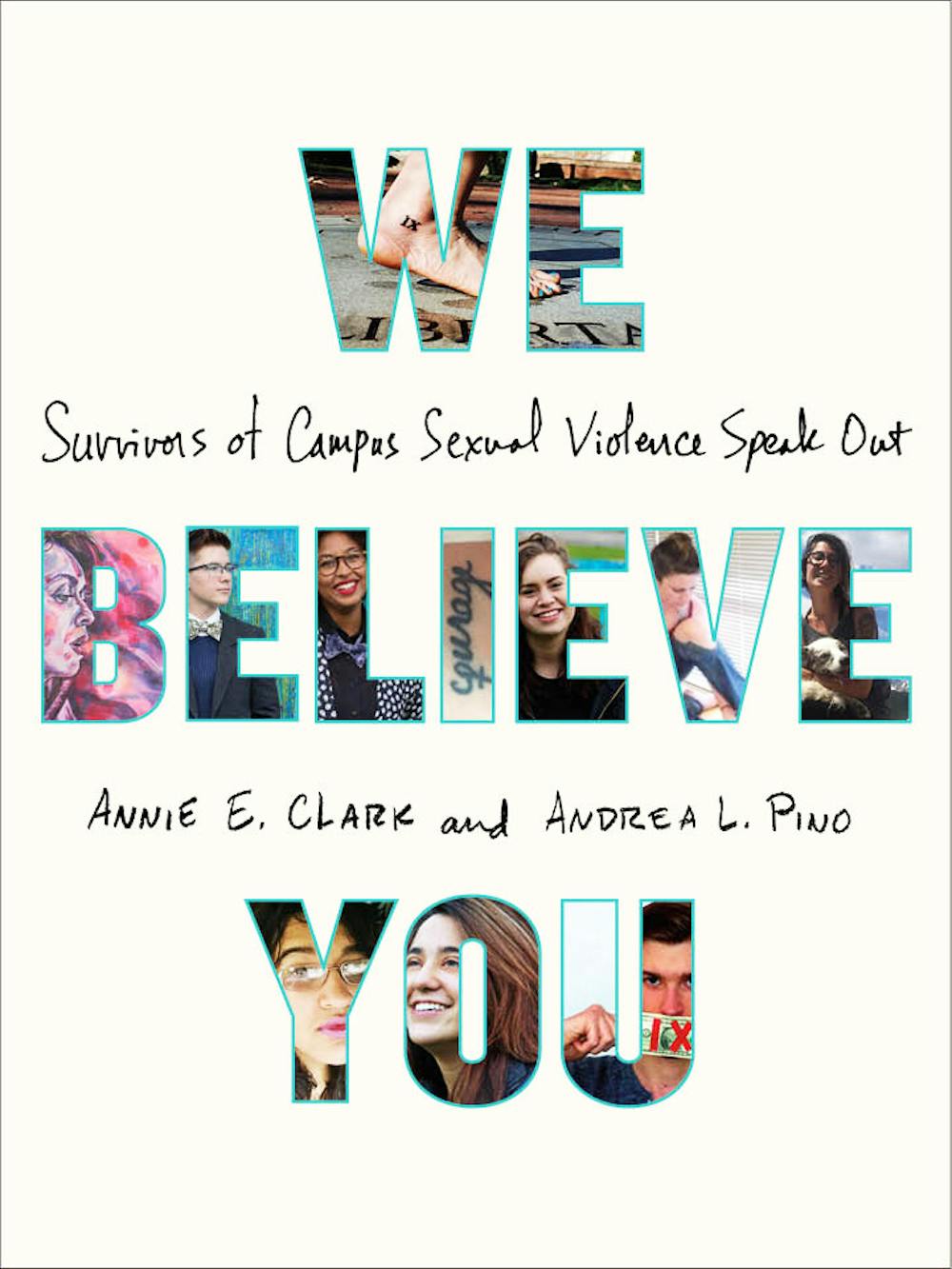On his sixth night at Brown, Andrew Brown ’15 was sexually assaulted. He’s spoken about his assault in a Huffington Post piece, the recent Oscar-nominated documentary “The Hunting Ground” and now again in the book, “We Believe You: Survivors of Campus Sexual Assault Speak Out,” to be released April 13.
While Brown wishes he had never been assaulted and recognizes that “survivors are completely in a position to tell as much or as little of their story as they’d like,” he said he “felt surrounded by such supportive communities” that he wanted to share his story.
“For me, knowing that if one other person felt less alone because of what I shared, it would be worth it,” he said.
Brown said he connected with the editors of the book, Annie Clark and Andrea Pino, the co-founders of the survivor advocacy group End Rape On Campus, through his appearance in “The Hunting Ground.” The documentary focuses on Clark and Pino’s advocacy work and their lawsuit against the University of North Carolina at Chapel Hill, where they were both sexually assaulted as undergraduates.
The pair was moved to gather survivors’ narratives because they “wanted to compile something that gave a platform and showed these stories in a way that was unedited and unfiltered by the media,” Clark said.
In featuring the narratives of a diverse collection of survivors, the book sheds light on “intersecting identities that we didn’t usually see,” Clark said.
“We Believe You” features stories, artwork, poetry, letters and transcripts from dozens of survivors of sexual assault from an array of gender identities, sexual orientations, races, ethnicities, religions and immigration and socioeconomic statuses.
“I’m really proud of the representation of the book. We just haven’t had this type of representation before,” Pino said.
She emphasized that the diversity is not limited to demographic qualifiers; there is diversity in experience represented in the book as well.
Brown noted the importance of representing the spectrum of experiences people have with sexual violence: Sexual assault and healing following trauma “happen to so many different kinds of people, and it happens in so many different kinds of ways,” he said.
Clark harkened back to the typified manner in which the media portrays survivors’ stories and activism.
“It’s about time that survivors are portrayed as people and not just as stories and not just as figures,” Pino said.
Working to mitigate the suffering that results from sexual assault is not done in one way either, Clark said. There is an expectation that “you have to share your story,” and that’s simply not the case, Clark said. “A mother teaching her sons how to respect other human beings is just as powerful” as going public with one’s experience, she said.
Brown echoed the importance of survivors sharing their experiences “on their own terms.” With journalists or film editors, “what you’re missing out on is the full experience people have. They’re already making decisions about what’s most palatable.”
“We Believe You” seeks to remedy that issue by contextualizing the survivors’ narratives in their lives before and after their assault. The narratives are structured in chronological sections rather than told side by side in distinct blocks, and Brown’s is one of a few that weaves throughout the book, thematically stringing the pieces together, he said.
Brown added that the editors have made sure that the survivors in the book are happy with how they are portrayed.
Concerns with confidentiality also shaped the text, Clark and Pino said. Some contributors are anonymous because of safety concerns, and a few survivors dropped out, Pino said.
“It’s a privilege to be out there publicly with my name and my face because I’m not living in fear of retaliation,” Clark said. Not everyone has that privilege, she added.
Brown also acknowledged that his case differs from many: Though it “was not handled well by Brown (University),” Brown’s assaulter was eventually expelled from campus, he said.
But the healing process is different for everyone regardless of legal or hearing outcomes, Brown said. “It’s not all about reconciliation and forgiveness or confrontation — it’s about your relationship that you have with yourself.”
Pino and Clark noted that while the book is intended to demonstrate to other survivors that they are not alone, it will resonate differently with different audiences. Ideally, it will teach friends and family members how to create a strong support system for survivors.
As far as campus support systems go, Bita Shooshani, a Counseling and Psychological Services psychotherapist who works with survivors of sexual assault, noted that the Sexual Assault Peer Educators at Brown do a “lot of incredible work” educating the community.
“It’s important that everyone know they can do something and to know that this happens in our community,” she said. “It’s really easy for people to go into a place of denial” about sexual assault on campus.
The book could be an “opportunity to collectively break out of the denial,” Shooshani added.
Brown maintains the book will help people feel like they have a place to turn.
“The real point is that this never should have happened to you, and you are worthy of being helped and worthy of being believed,” he said.
Proceeds from sales of the book will go to End Rape on Campus.





